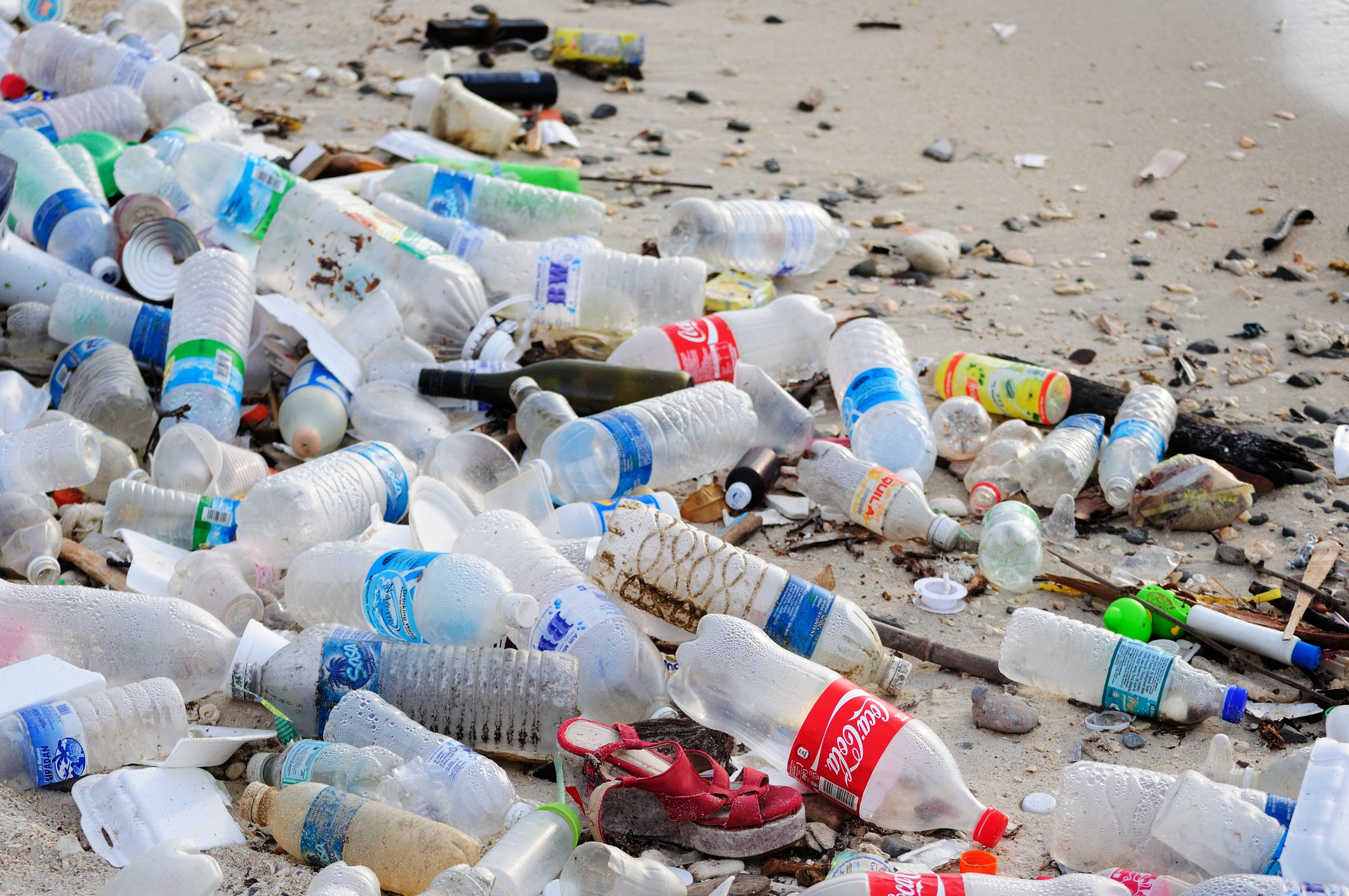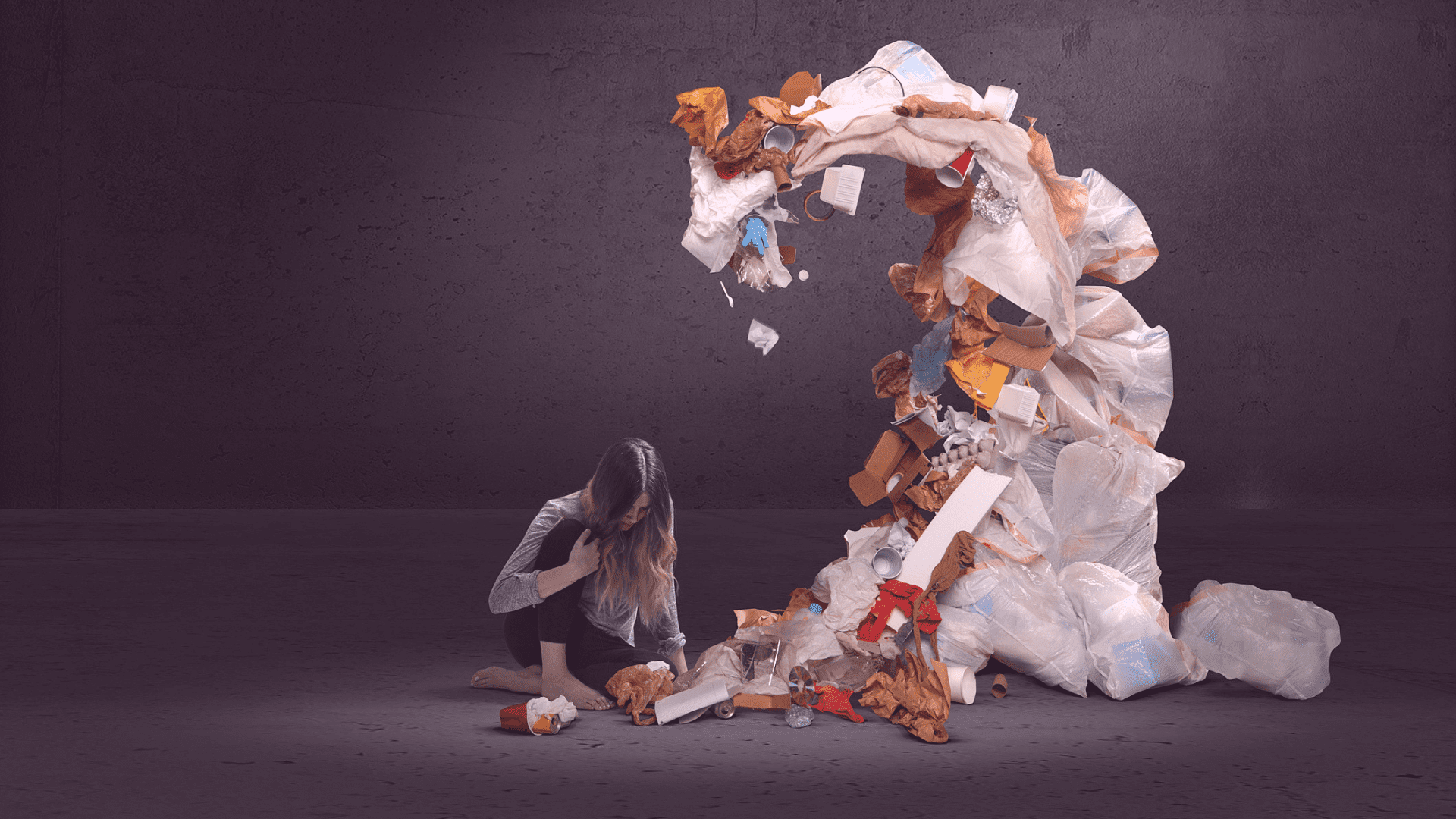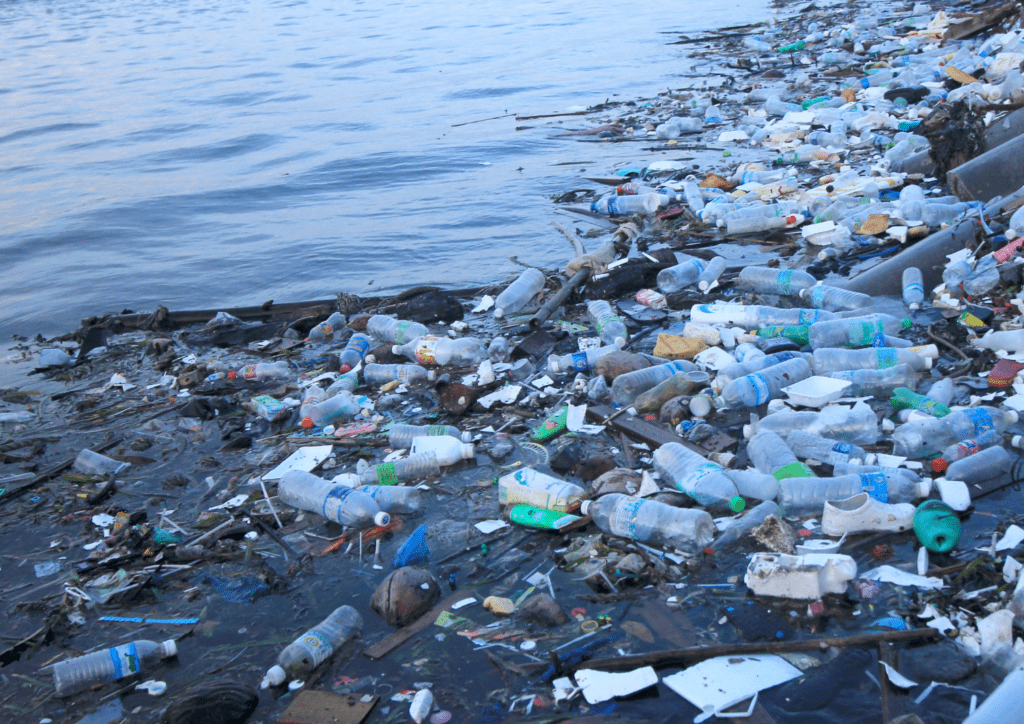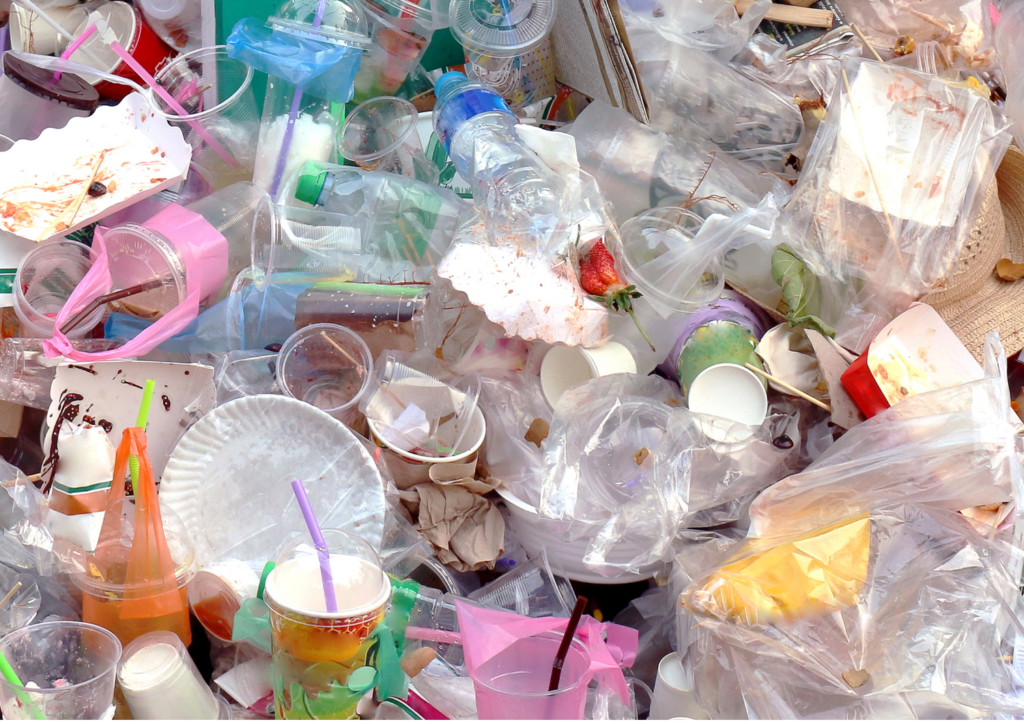Reducing your plastic footprint is a fantastic thing you can do to help prevent plastic pollution. The more people who do it the better for our planet, and the more the message will get through to businesses that we’ve had enough of plastic waste.
But that doesn’t mean that you deserve that ball of plastic guilt you’re carrying around, or that it’s on us to fix it all.
I understand the guilt. Sometimes I think about how the plastic packaging from a salad I had on a random Tuesday ten years ago is still out there somewhere, and will be long after I’ve gone to the great lunch buffet in the sky. And I feel horrible. But back then we weren’t as aware of the damage that plastics are doing to our environment. Now that we’re hit by daily reminders of it, the real question is this:
Why are producers allowed to make money selling packaging that can’t be reused or recycled, and that will live on in the environment for hundreds of years?
Who’s the real litterbug?
I recently read a report in the Scientific American that described how in the 1950s a group of beverage companies including Coca Cola created the non-profit organisation Keep America Beautiful. Their aim was to instill a sense of “environmental stewardship” in the American public, and the organisation is actually credited with introducing the word “litterbug” into general speech.
Sounds pretty benevolent, right? Not exactly. By shifting responsibility off themselves and onto the individual, these companies were able to actually avoid or undo environmental laws which would have stopped them from selling single-use bottles rather than refillables. Flash forward to today, and Coke has admitted to putting out 3 million tonnes of plastic packaging into the world every year. At the same time they’re continuing to promote the idea of individual responsibility by funding beach cleanup events. I don’t know about you, but that makes me angry.

You don’t deserve that plastic guilt
As a society we’ve internalised the idea that it’s our responsibility to clean up their mess. And yet producers and packagers make it really tough for us to avoid buying plastics in the first place!
The aisles of my local No Frills are packed to the rafters with film wrappers and stand-up pouches and tomatoes in plastic clam-shells. It’s often cheaper to buy large quantities wrapped in plastic than smaller amounts loose, and if you want meat or dairy without the plastic it’s almost impossible.
And what about the hundreds of incidentals you don’t even see coming? The random plastic spoon in your ice cream cone, the surprise straw in your water, or the plastic cup you’re handed before you have a chance to say you want a glass?
Around 40 per cent of all the plastics made worldwide are made for packaging. That’s billions of tonnes every year. Most of us do our best to recycle responsibly in a confusing system, but the fact is that it’s not always easy. And then you realise that much of what we buy isn’t actually recyclable! Black plastic, mixed materials, polystyrene… they seem like they should be but in reality it’s cheaper to make new packaging than recycle what’s there. It’s infuriating.
None of this is to say that we shouldn’t keep recycling responsibly and aiming to reduce our own impact. What I’m trying to say is that we should let go of our guilt, and start getting angry.
You do your bit, now they should do theirs
Absolutely, do the best you can in your circumstances to avoid plastic. There are plenty of guides and social media groups out there to help you get started, and it really does make a difference. If each of us carried a re-usable coffee mug instead of taking disposables we could avoid literally billions of cups going to landfill each year.
But more importantly, we need to put responsibility where it belongs, and demand change where it can make the most impact.
So write to your MP and MPP, sign petitions, contact businesses and supermarkets and packagers, and get your friends to do the same. Stop feeling guilty, and start getting angry.









